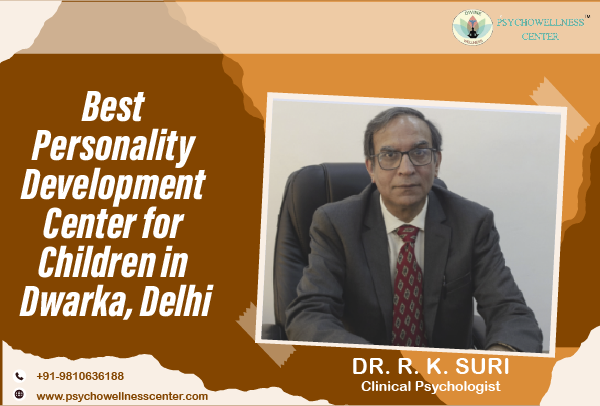Counseling for Young Adults Transitioning to Adulthood

Transitioning from adolescence to adulthood is a transformative journey filled with excitement, challenges, and uncertainties. As young adults navigate this crucial phase of life, they encounter a myriad of decisions regarding education, career, relationships, and personal identity. Amid these transitions, many individuals may find themselves feeling overwhelmed, confused, or unsure of how to navigate the complexities of adulthood. This is where counseling can serve as a guiding light, offering support, guidance, and strategies to help young adults navigate the challenges of this transitional period. In this comprehensive exploration, we delve into the role of counseling for young adults transitioning to adulthood, examining its significance, benefits, and enduring impact.
Understanding the Transition to Adulthood:
The transition from adolescence to adulthood is a multifaceted process that encompasses physical, emotional, and social changes. It is a time of profound growth and self-discovery as individuals begin to assert their independence, establish their identities, and navigate the complexities of adult life. This transition is often marked by key milestones such as completing education, entering the workforce, forming intimate Relationships, and assuming greater responsibilities.
Challenges Faced by Young Adults:
Despite the excitement of embarking on a new chapter in life, young adults often encounter a host of challenges and obstacles along the way. These challenges may include:
Academic and Career-related Stress:
Choosing a career path: Deciding on a career direction can be daunting, especially when faced with multiple options and societal expectations.
Navigating job market challenges: Competition for jobs, uncertainties about the future, and economic factors can contribute to stress and anxiety.
Managing academic expectations: Balancing academic demands, deadlines, and performance pressures can be overwhelming for young adults.
Financial Pressures:
Achieving financial independence: Managing expenses, budgeting, and achieving financial stability while juggling student loans and other financial obligations can be challenging.
Balancing work and financial responsibilities: Finding a balance between work, education, and personal finances can be difficult, particularly for those transitioning from student life to the workforce.
Relationship Issues:
Forming and maintaining relationships: Building healthy relationships with peers, family members, and romantic partners while navigating changing social dynamics can be complex.
Communication and conflict resolution: Developing effective communication skills and resolving conflicts constructively are essential for maintaining healthy relationships.
Identity and Self-esteem:
Exploring personal identity: Young adults may grapple with questions of identity, purpose, and self-worth as they navigate societal expectations and peer influences.
Building self-esteem: Developing confidence, self-belief, and a positive self-image are crucial for navigating the challenges of adulthood with resilience and optimism.
Mental Health Concerns:
Anxiety and stress: Managing stressors such as academic pressure, career uncertainty, and relationship challenges can exacerbate feelings of Anxiety and overwhelm.
Depression and mood disorders: Coping with feelings of sadness, hopelessness, and low self-esteem can impact overall well-being and quality of life.
Self-care and coping strategies: Developing healthy coping mechanisms, self-care routines, and seeking professional support are essential for maintaining mental health during the transition to adulthood.
The Role of Counseling:
Counseling plays a pivotal role in supporting young adults as they navigate the challenges of transitioning to adulthood. Here's how counseling can help:
Providing a Safe Space:
Counseling offers a confidential and nonjudgmental environment where young adults can express their thoughts, feelings, and concerns without fear of criticism or judgment.
Having a supportive counselor can provide validation, empathy, and understanding, fostering a sense of trust and rapport between the client and therapist.
Clarifying Goals and Values:
Counselors help young adults explore their values, interests, and goals, empowering them to make informed decisions about their future.
Through reflective exercises, goal-setting, and exploration of personal values, young adults can gain clarity about their aspirations and priorities in life.
Developing Coping Strategies:
Counselors teach coping skills and techniques to help young adults manage stress, anxiety, and other challenges effectively.
By learning healthy coping mechanisms such as mindfulness, Relaxation techniques, and problem-solving strategies, young adults can build resilience and adaptive coping skills.
Enhancing Communication Skills:
Counseling sessions provide opportunities for young adults to improve their communication skills, assertiveness, and conflict resolution abilities.
Through role-playing exercises, active listening, and communication training, clients can learn effective communication strategies for expressing their needs, setting boundaries, and resolving conflicts in relationships.
Addressing Mental Health Concerns:
Counselors provide support and guidance for managing mental health issues such as anxiety, depression, and self-esteem issues.
Through evidence-based interventions such as Cognitive-behavioral therapy (CBT), mindfulness-based techniques, and psychosocial support, counselors help clients develop coping strategies and resilience to manage their mental health challenges effectively.
Facilitating Life Transitions:
Counselors assist young adults in navigating life transitions such as entering college, starting a career, or moving away from home.
By providing practical guidance, emotional support, and resources, counselors help clients navigate the challenges and uncertainties of major life transitions with confidence and resilience.
Conclusion:
In conclusion, counseling serves as a valuable resource for young adults as they navigate the complexities of transitioning to adulthood. By providing support, guidance, and practical tools, counselors empower young adults to overcome challenges, make informed decisions, and cultivate resilience in the face of adversity. As young adults embark on this transformative journey, counseling offers a guiding light, illuminating the path to self-discovery, growth, and fulfillment.
online counseling services at TalktoAngel and the Psychowellness Center in Delhi offer Teen Therapy. Additionally, you can schedule an appointment with the best psychologists in Delhi at the Psychowellness Center, which has multiple locations in Delhi NCR, NOIDA, Faridabad, Janakpuri, Dwarka, and Vasant Vihar. With a compassionate approach, we can help teenagers navigate adolescence and become responsible adults.
Dr. (Prof) R.K. Suri, a clinical psychologist and life coach, alongside Ms. Sulochna Arora, a counseling psychologist, provides expert guidance on mental health and personal development.
References:
- Arnett, J. J. (2014). Emerging adulthood: The winding road from the late teens through the twenties. Oxford University Press.
- Schwartz, S. J., Zamboanga, B. L., Luyckx, K., Meca, A., & Ritchie, R. A. (2013). Identity in emerging adulthood reviewing the field and looking forward. Emerging Adulthood, 1(2), 96-113.




SHARE